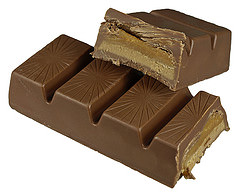
flic.kr/p/mqFah9
Lecithin has two definitions, but that depends on whom you asked. First, it refers to commercial lecithin, such as lecithin supplements, that come either from egg yolk or soybeans. Second, lecithin is a term used synonymously with phosphatidyl choline (PC), a phospholipid that is found in the cells of all living organisms, animals and plant alike.
As a phospholipid, lecithin or phosphatidyl choline is composed of one of the 10 main types of lipids in cell membranes, including cholesterol, glycolipids, spingomyelin, phosphatidyl inositol, phosphatidyl serine, phosphatidyl glycerol, phosphatidylethnolamine, diphosphatidyl glycerol (cardiolipin), and phosphatidic acid. Phospholipids have hydrophobic tails, which means they continually push away from the watery places surrounding the cell and maintaining the fatty cholesterol, which gives rigidity to the cell membrane. This function of lecithin is often termed as its “emulsifying action,” and one of the major uses of commercial lecithin is actually as an emulsifying agent used to keep margarine, butter, chocolate bars, etc.
When talking about lecithin supplements, however, what people generally refer to is phosphatidyl choline, or more specifically its purified form, which is choline, a B-vitamin and an essential nutrient.
There is much health benefit attributed to both choline found in lecithin supplements and phosphatidyl choline. The compound has been associated with treatments for a variety of diseases from lowering high blood cholesterol, to reducing heart attacks and stroke, atherosclerosis, dispelling symptoms of gall stones and cirrhosis of the liver, and improving memory loss. Lecithin supplements are even currently marketed as supplement to weight loss.
It should, however, be noted that phosphatidyl choline itself is not an essential nutrient. Our bodies already have it and can produce more of it should the need arise. On the other hand, choline can only be derived from the foods we eat. A deficiency in this compound could lead to different debilitating diseases, not least of which is cirrhosis of the liver. The good thing about it is that phosphatidyl choline is usually synthesized by the body to form choline, so taking in lots of lecithin supplements containing a high percentage of the compound could help boost your supply of choline and overcome a likely deficiency.
Lecithin supplements are one of the few emulsifiers approved by the United States Food and Drug Administration as GRAS or Generally Recommended as Safe for consumer consumption. There are no Recommended Dietary Allowances for lecithin supplements; but some scientists do recommend an Adequate Intake for choline. For men, 550 mg is often recommended as adequate for daily use while for women, 425 mg is required.
Both lecithin and choline supplements are available in the market. If you want the most effective way to elevate your choline levels, however, the intake of lecithin supplements is often recommended. Anyway, your body will simply synthesize the phosphatidyl choline into choline for use. Another reason why choline supplementation is sometimes discouraged is because taking large amounts of choline supplements has been known to produce a fish-like smell in the user.
Taking lecithin supplements with meals is the perfect way for your body to absorb the nutrients. You may consider sprinkling lecithin supplements in granular form unto your food.
Tagged with: lecithin benefits • soya benefits
Filed under: Lecithin